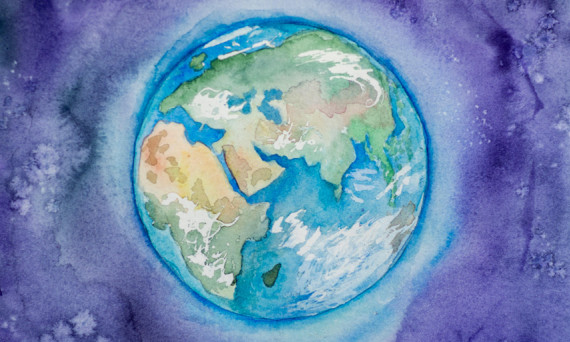On May 22, the Stasis Center for Practical Philosophy of the European University at St. Petersburg and teachers of the new master's program “Geophilosophy and New Materialism” will organize an international online conference “Anthropocene or Revenge of the Inhuman?” (beginning at 17:00).
The conference will be held in the format of 15-minute speeches, after which a general discussion will take place. Presentations will be presented by Oksana Timofeeva (professor, EUSP), Yoel Regev (associate professor, EUSP), Oleg Kharkhordin (professor, EUSP), Michael Marder (professor of philosophy, University of the Basque Country, Spain), Frederick Neira (assistant professor of comparative literature at the University of Wisconsin-Madison, USA), Pavel Pepperstein (writer, artist, theorist of contemporary art). Moderator — Artemy Magun (professor, EUSP).
Working languages: Russian and English.
- The Anthropocene or the Revenge of the Nonhuman?
-
The year 2020 brutally disturbed the logic of a rapidly developing ecological awareness, which, in 2019, seemed to reach its highest points: not only with Greta Thunberg becoming the face for environmental politics as “the new opium for the masses”, but also with the expansion of the discourse of Anthropocene into the broadest fields of scholarship and culture. The reality we faced a year ago was one of climate change. It is not that it hadn’t been there before: the dangers of the greenhouse effect reinforced by carbon emissions and other factors of industrial developments were already indicated by scientists in the 1960s. But only recently they started to be taken seriously by the general public, and even by our governments. The discourse of Anthropocene, proclaiming a new geological era marked by the intervention of human technologies that have visibly destabilized planetary life, is a critical one: what we call progress is nothing but the destruction of the biosphere, of the environment that we share with all other earthly things. Nonetheless, the flip side of this criticism is a paradoxical arrogance which implies the omnipotence of humans: Why do we destroy nature?—Because we can! Isn’t it that, in this aspect, the idea of the Anthropocene is itself anthropocentric? In 2020, however, this arrogance is taken down by an infinitesimal nonhuman thing that is not even properly alive. Out of the human view, the virus wavers between life and death. Its way of replication is such that it breaks the existence of our communities and endangers all our infrastructures and socio-economic systems. The pandemic teaches us that we are not that powerful and that there are still those natural forces that we cannot control. But, in response, the proponents of the other side argue that the virus only underlined the degree to which humanity had destroyed and changed the planet to the worse.
It is tempting to say that, with the virus, nature takes its revenge on humans, but is this really revenge? How should we understand an ongoing clash? Does the Earth really strike back? Who or what challenges the Anthropocene? These questions will be discussed at our conference.
